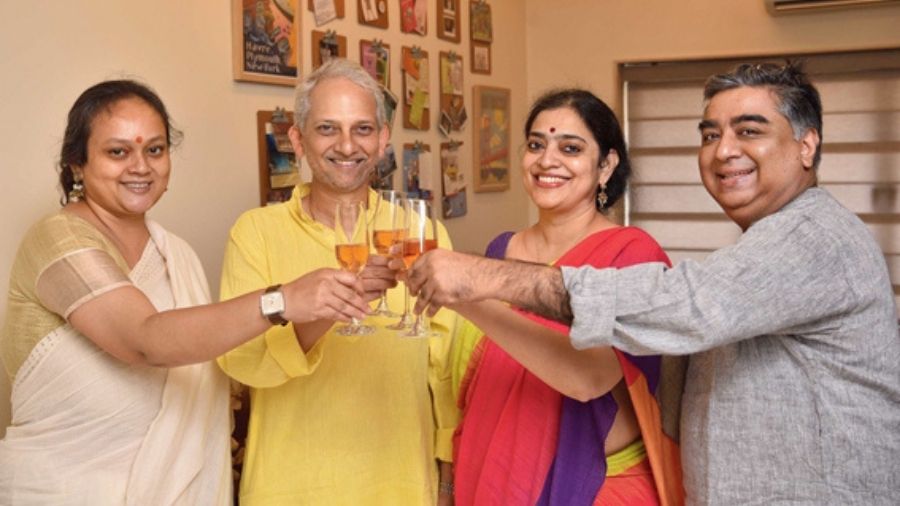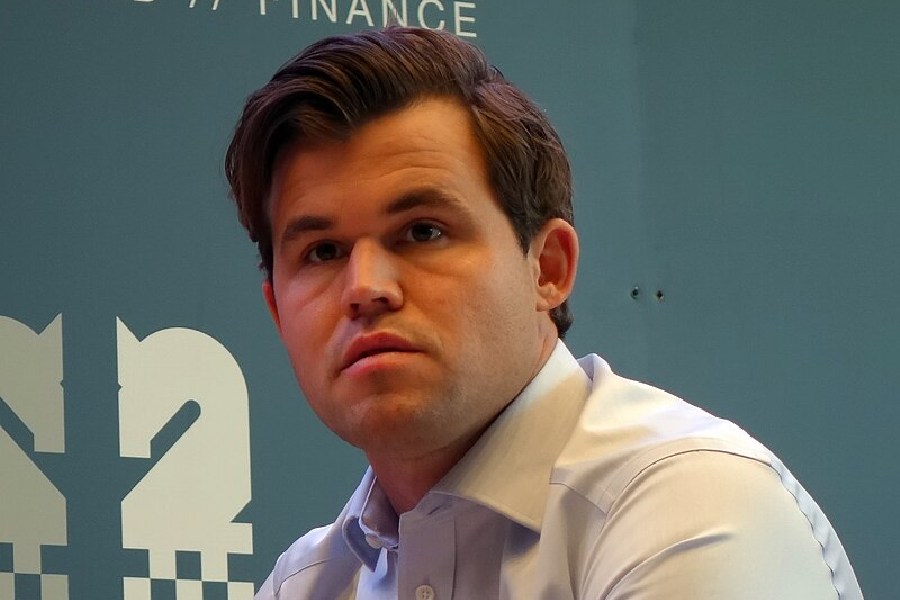For 10 years now, Byloom has been indulging the city’s handloom and handicraft cravings from their quaint address at 58B Hindustan Park — a bylane near Gariahat that balances the old and the new of south Calcutta, much like the wares (and wears) of the store. Known for their work with the weavers and artisans of Bengal and their signature take on handloom saris, ranging from their Abir saris to their khadis, indigos and more and even the knick knacks and accessories available on the ground floor, Byloom has succeeded in consistently drawing in their own niche clientele for a decade now to their beautifully-restored two-level store. Add to that, the Byloom Canteen that serves up a storm with their menu featuring city classics and other favourites. On the occasion of their 10th anniversary, we chatted with partners Malavika and Jeet Banerjee; and Bappaditya Biswas and Rumi. Excerpts:
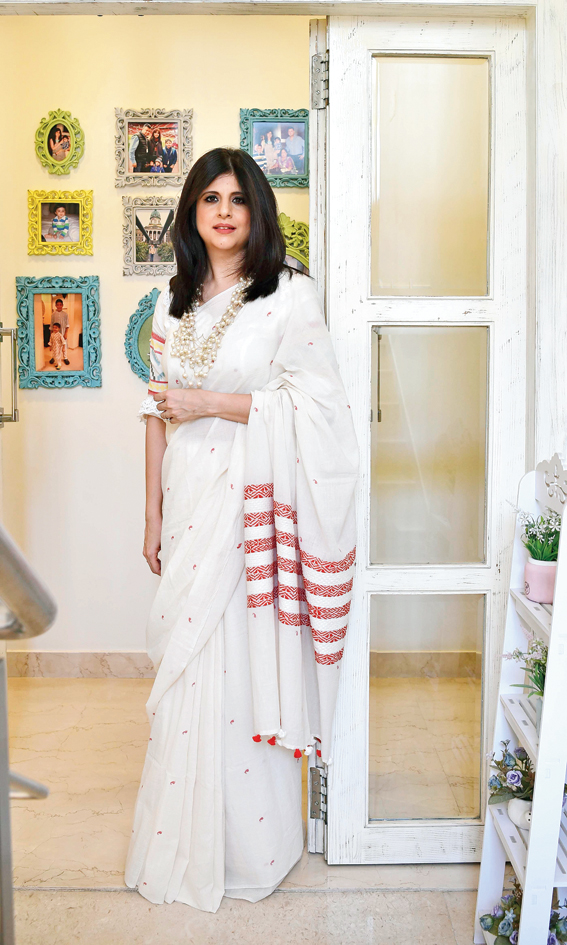
Dr Divya Midha who works as a senior consultant in the department of Oncopathology at Tata Medical Center is seen here in Byloom’s Bonbibi cotton buti jamdani sari. Made of very fine cotton akin to muslin with tiny jamdani paisley butis woven all over, the pallu has been embroidered in red and white. Rs 4,500 Picture by B. Halder
On the 10th anniversary of the store, what would you list as the biggest achievement for Byloom?
Bappaditya: That would be putting Bengal on the handloom map of the world. Byloom has become a destination for all handloom lovers from all over the world that has spurred the inclusion of handloom and handmade as a part of one’s wardrobe and lifestyle. Many of our customers say we are the reason why they have gone back to wearing saris. Currently, the raging issue of sustainability and the aspects of slow fashion, upcycle and recycle are things we have been following from day one. It’s a major part of our ideology.
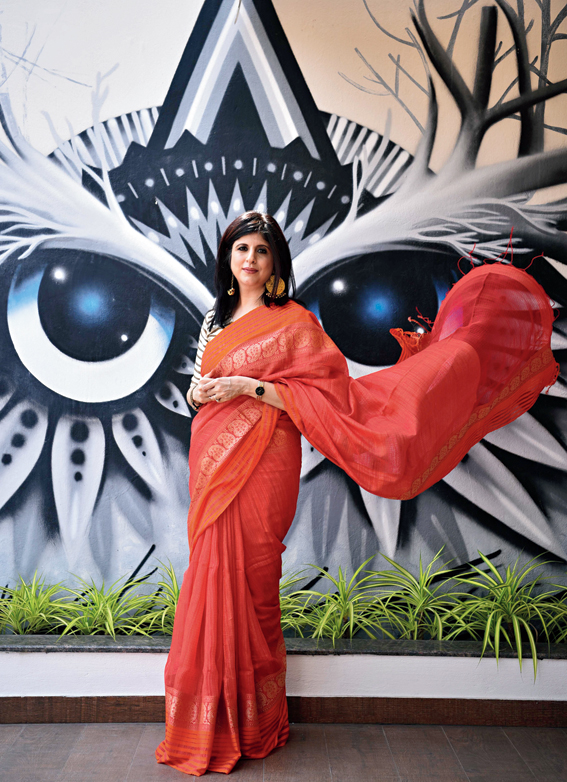
Divya is seen here in a Pachapede sari on matka silk with a traditional border, revived on silk. The naksha is woven with tussore silk. Rs 6,090 Picture by B. Halder
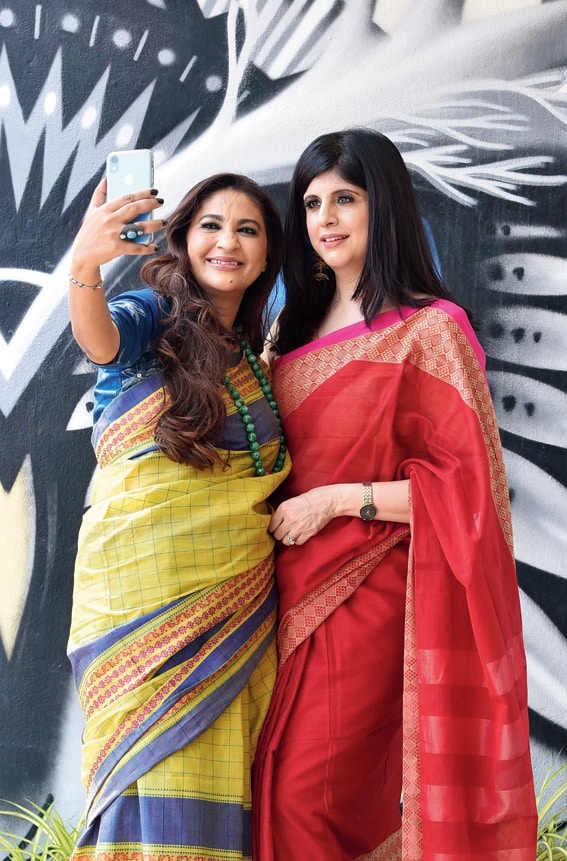
Divya is seen here in a Diamond Nakshi in pure cotton, with a broad naksha borders, revived from the traditional Tangail borders. She is seen with Dr. Sheena Misra Ghosh, consultant psychologist at AMRI Hospital, Fortis Hospital and Apollo Clinic at City Centre Salt Lake. Sheena is wearing a flower check, pure cotton, three-bordered Naksha sari with a contemporary twist of thin-lined checks on the body. Rs 2,363 for the Nakshi and Rs 2,468 for the three-border Naksha sari Picture by B. Halder
What have been some of the challenges that you have had to persevere through to get to this point?
Malavika: The big opportunity through the decade was the growth of online shopping. The challenge of constantly uploading, updating and responding to queries really tested Byloom when we first went online. The other challenge was to make clients understand that handicraft has minor differences from one piece to another. Online retail is an incredible opportunity for a store like us and we have gradually learnt to embrace it.
Jeet: The challenge of Covid. When we reopened on May 26 last year, for Byloom, it was like learning to walk again. We were committed to reach out to our weavers after Amphan, not lay off staff and still remain afloat. The battle is still on but from weavers to customers, everyone has helped us in this period.
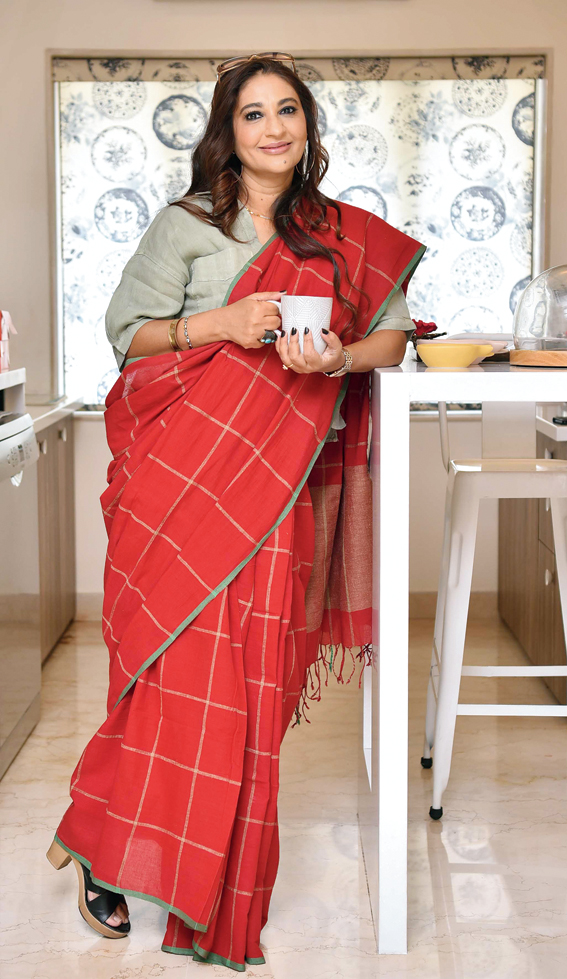
Sheena is wearing a Takli, with its name referring to the wooden tool that is used to spin yarns. This range of saris is a contemporary take on textures by mixing different yarns in the warp and the weft to explore the possibilities of working with the Matha handloom. The sari has large checks in tussore on a cotton body. Rs 1,650 Picture by B. Halder
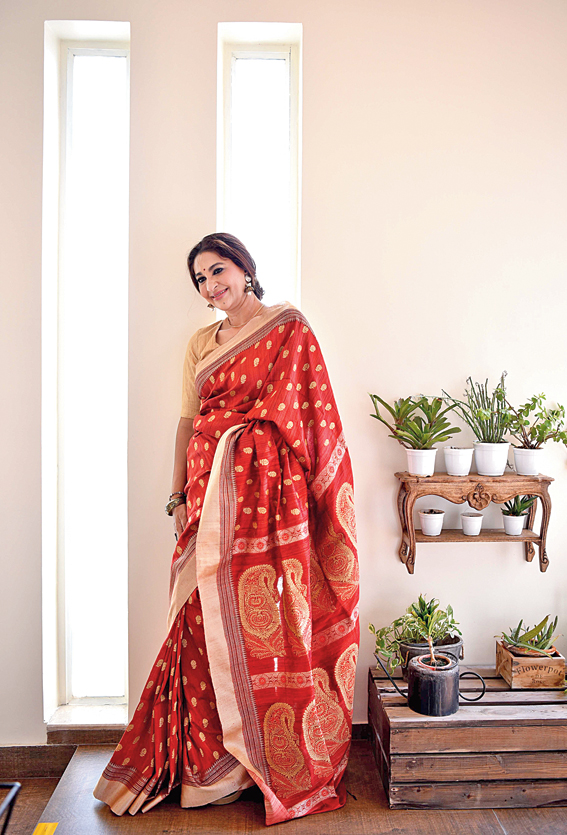
Sheena is seen here flaunting a Bailouchari, which is the store’s take on the revival of very old Baluchari motifs from books and pictures from when the figurative motifs had not yet come into the design language. The store’s iteration has changed the texture from the otherwise-flat mulberry silk. Rs 26,250. Picture by B. Halder
What are your plans for the future?
Rumi: Covid has forced us to rethink growth and consumption. What is important now is all businesses should have a sustainable circular impact, both on local communities and the environment. Byloom and the in-house brand Bailou are committed to this growth, which is far-reaching and not superficial.

